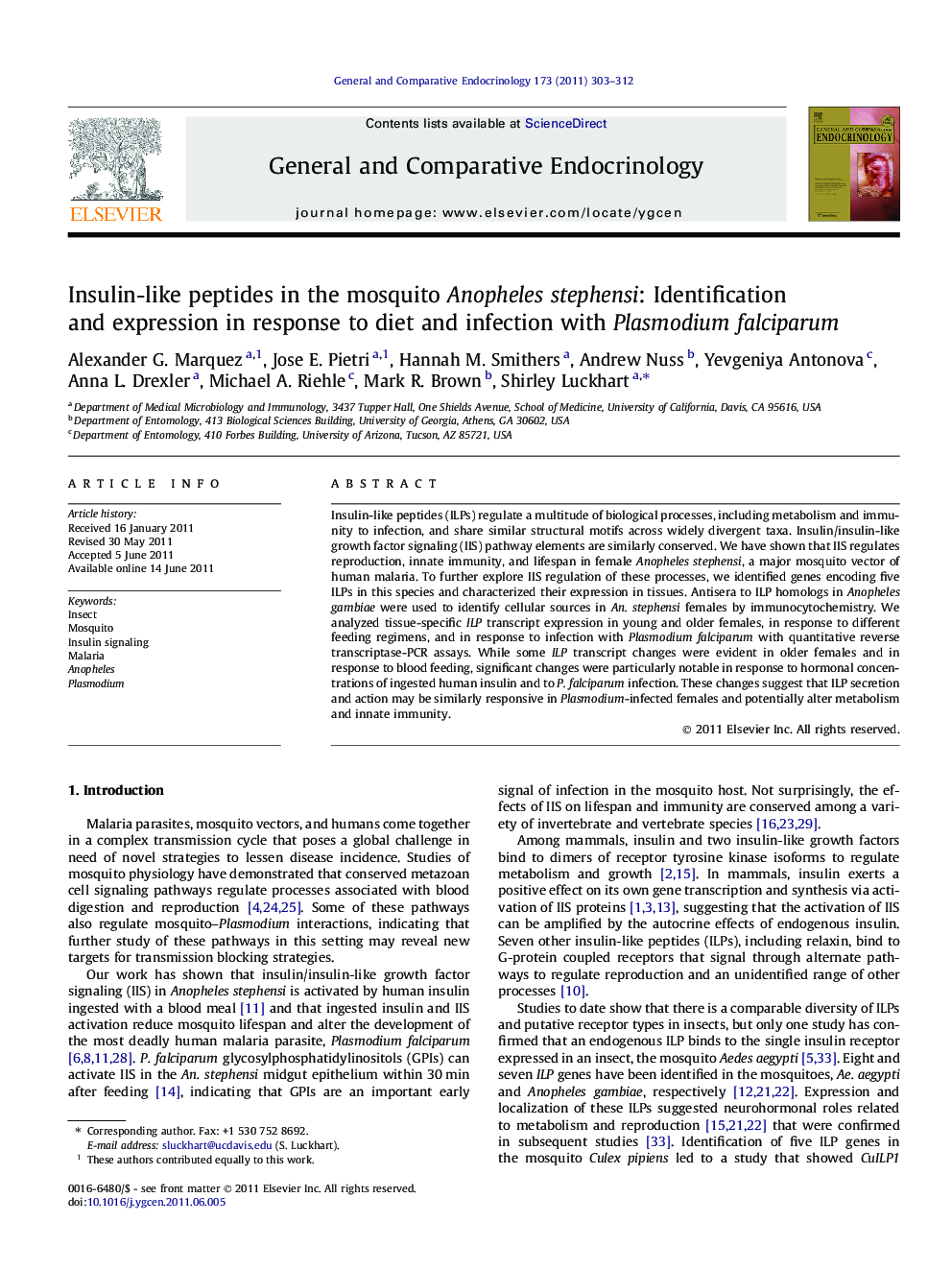| Article ID | Journal | Published Year | Pages | File Type |
|---|---|---|---|---|
| 2800741 | General and Comparative Endocrinology | 2011 | 10 Pages |
Insulin-like peptides (ILPs) regulate a multitude of biological processes, including metabolism and immunity to infection, and share similar structural motifs across widely divergent taxa. Insulin/insulin-like growth factor signaling (IIS) pathway elements are similarly conserved. We have shown that IIS regulates reproduction, innate immunity, and lifespan in female Anopheles stephensi, a major mosquito vector of human malaria. To further explore IIS regulation of these processes, we identified genes encoding five ILPs in this species and characterized their expression in tissues. Antisera to ILP homologs in Anopheles gambiae were used to identify cellular sources in An. stephensi females by immunocytochemistry. We analyzed tissue-specific ILP transcript expression in young and older females, in response to different feeding regimens, and in response to infection with Plasmodiumfalciparum with quantitative reverse transcriptase-PCR assays. While some ILP transcript changes were evident in older females and in response to blood feeding, significant changes were particularly notable in response to hormonal concentrations of ingested human insulin and to P. falciparum infection. These changes suggest that ILP secretion and action may be similarly responsive in Plasmodium-infected females and potentially alter metabolism and innate immunity.
► Five insulin-like peptide encoding genes were identified from Anopheles stephensi. ► Insulin-like peptide gene expression was evident in all tissues examined. ► Anti-ILP antibodies labeled only in cells of the nervous system. ► ILP expression was not specifically tuned to feeding on sugar or red blood cells. ► ILP expression was increased in response to human insulin and Plasmodium falciparum infection.
